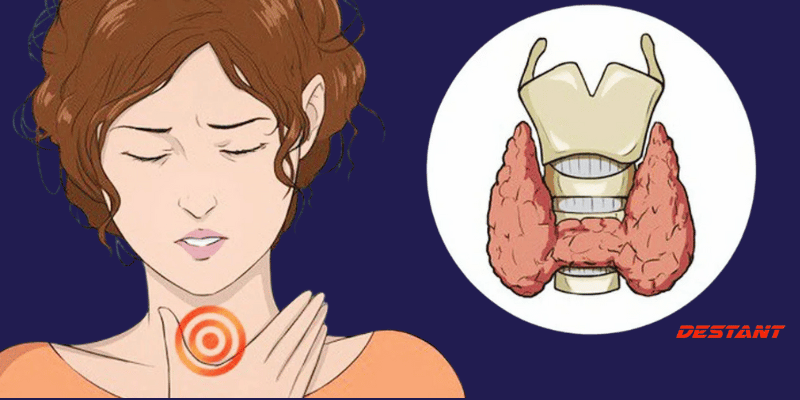Signs that may indicate a problem with the thyroid gland.
In conjunction with “World Thyroid Day” observed annually on May 25th, healthcare professionals emphasize the importance of raising awareness about thyroid-related diseases. Recognizing symptoms early and seeking prompt treatment are crucial to preventing these conditions from posing threats to human life.
Understanding the Thyroid Gland:
Situated below the neck, the thyroid gland is a small organ responsible for producing two key hormones: thyroxine (T-4) and triiodothyronine (T-3). These hormones play vital roles in regulating the body’s utilization of fats and carbohydrates, controlling body temperature, influencing heart rate, and managing protein production levels.
Thyroid Disorders and Their Symptoms:
Thyroid disorders manifest with varying symptoms that impact overall health. Hypothyroidism, characterized by insufficient thyroid hormone production, may exhibit symptoms such as overweight, fatigue, muscle weakness, slow heart rate (bradycardia), sensitivity to cold, constipation, facial swelling, hoarseness of voice, rough hair and skin, irregular menstrual cycles, hair thinning, depression, and memory problems.
Conversely, hyperthyroidism, marked by an excess of thyroid hormone secretion, presents symptoms like weight loss, rapid heartbeat, arrhythmia, increased hunger, an enlarged thyroid gland (visible as a swelling at the base of the neck), fatigue, muscle weakness, sleep problems, nervousness, anxiety, hand and finger tremors, sweating, heightened sensitivity to heat, warm and moist skin, changes in menstrual cycles, altered bowel habits with increased frequency, thinning skin, and fragile hair.
Notably, the elderly often experience subtle symptoms that may go unnoticed, including irregular heartbeat, weight loss, depression, and weakness or fatigue during routine activities.
Seeking Medical Attention:
Individuals suspecting thyroid disease are advised to consult a doctor, who will likely conduct a thyroid function test using a blood sample to measure hormone levels. Early diagnosis and appropriate management are crucial in addressing thyroid-related issues and promoting overall well-being.



